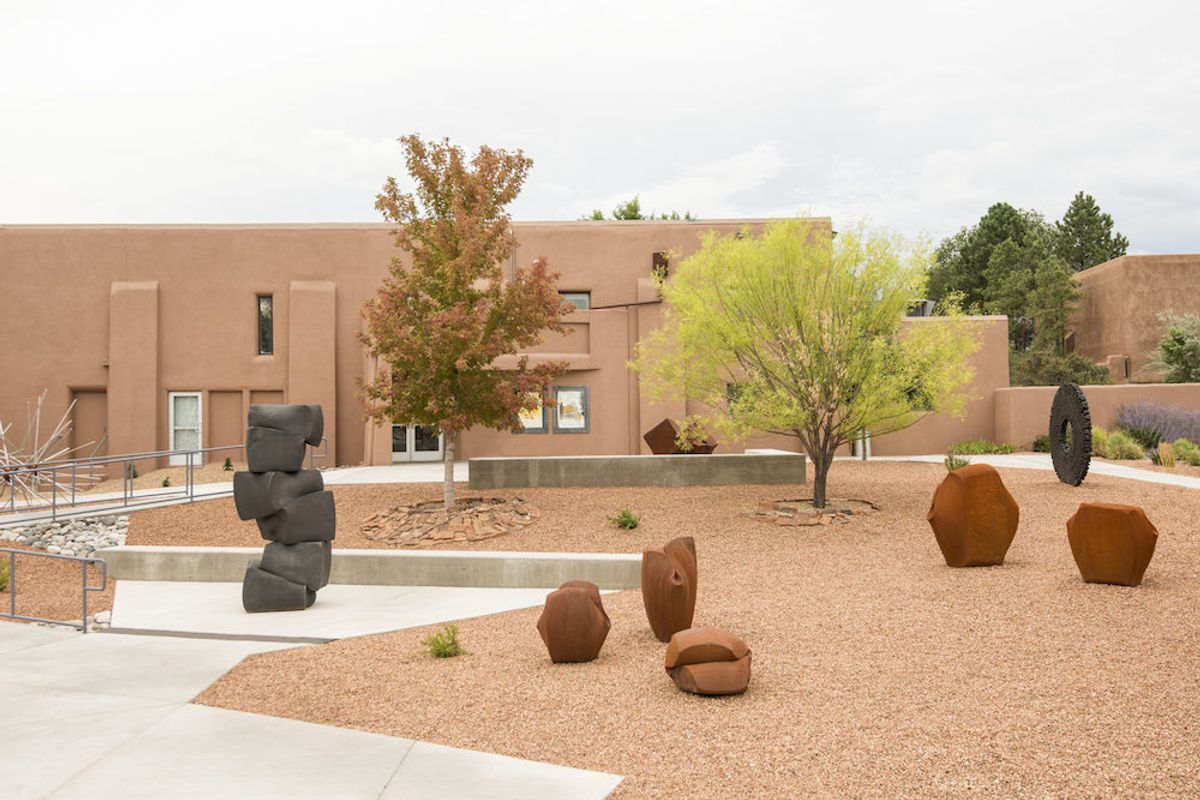The Center for Contemporary Arts (CCA) in Sante Fe, New Mexico, an important venue for art and cinema in the US Southwest that opened in 1979, permanently closed its doors on 6 April. A last-ditch fundraising effort by the centre's board members was seemingly insufficient to avert closure.
The institution’s sudden closure followed years of growing instability for CCA; while an official announcement cited shifts in film distribution and fundraising problems as the primary reasons for the institution's demise, insiders pointed to pushback against the museum’s programmatic shift toward showing more socially conscious work and other fundamental institutional identity issues.
In an interview with Hyperallergic, former CCA deputy director April Chalay described the “culture of instability” plaguing the institution after cycling through 19 directors over the past 11 years. Chalay also suggested that executive director and curator Danyelle Means's focus on Indigenous art might have alienated donors. Means, who is a member of the Oglala Lakota Nation, organised the centre's well-received 2022 exhibition, Determined: A Contemporary Survey of Native and Indigenous Artists.
“Not many people will voice ‘I don’t like this because it’s turning brown-er or younger’, but that’s absolutely what happened,” Chalay told Hyperallergic. “We had people who started criticising us and saying, ‘Your director is Indigenous and you’re doing an Indigenous show, are you just going to be an Indigenous arts org? Because that’s not what I want to give to.'"
Chalay also underlined CCA’s ongoing problem with the restricted grant model typical of non-profits—most private donations are designated for specific shows or programmes, not long-term initiatives like operations or payroll.
“The problem with the traditional non-profit board model is that it relies on a colonial model of philanthropy that’s based on the fact that older white people who come from heritages of wealth have the money and deem an organisation important enough to give to," Chalay said.
“For a nonprofit institution that operates independently of state support, the annual donations needed to sustainably continue operating was not enough, especially in the wake of challenges from pandemic closures and reduced attendance", Means said in a statement.
While the centre's announcement had a tone of finality, CCA board chairman David Muck told the Santa Fe Reporter the board is meeting to discuss the organisation's future amid a last-minute fundraising effort and public outcry.
“CCA has been in this position so many times, we were hesitant to do the boy-who-cried-wolf approach one more time,” Muck told the Reporter. “We didn’t think people would take us seriously".
In response to a call for $300,00 in donations from members of the board, $165,000 has already been pledged. The $300,000 figure is a far cry from the institution's planner operating budget for 2023 of nearly $1.3m, which Muck described as an "overshot".
A board meeting was to be held on 14 April to assess the fundraising efforts and whether or not the centre can be brought back from the brink. Muck did not immediately respond to a request for comment about the CCA's status, outcome of the latest board meeting and fundraising push.
At the onset of the Covid-19 pandemic, dire projections held that one third of US museums could be at risk of closure, although a subsequent survey revealed that only 15% were at serious risk. Even so a number of high-profile and regionally influential non-profits have shuttered—including the Museum of Contemporary Art in Santa Barbara, California, and the Urban Institute of Contemporary Arts in Grand Rapids, Michigan—citing the pandemic as an extenuating factor in the decision.


